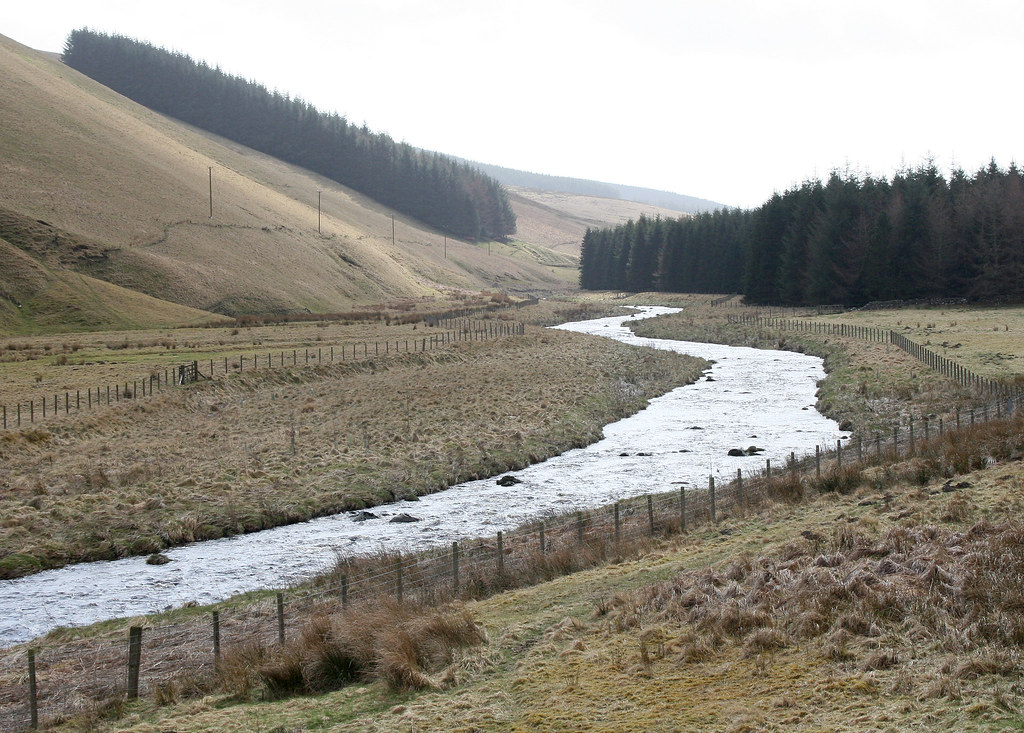
River Tweed near source, Glenbreck, Scotland: photo by Andrew Barclay, 26 March 2009
Says Tweed to Till --
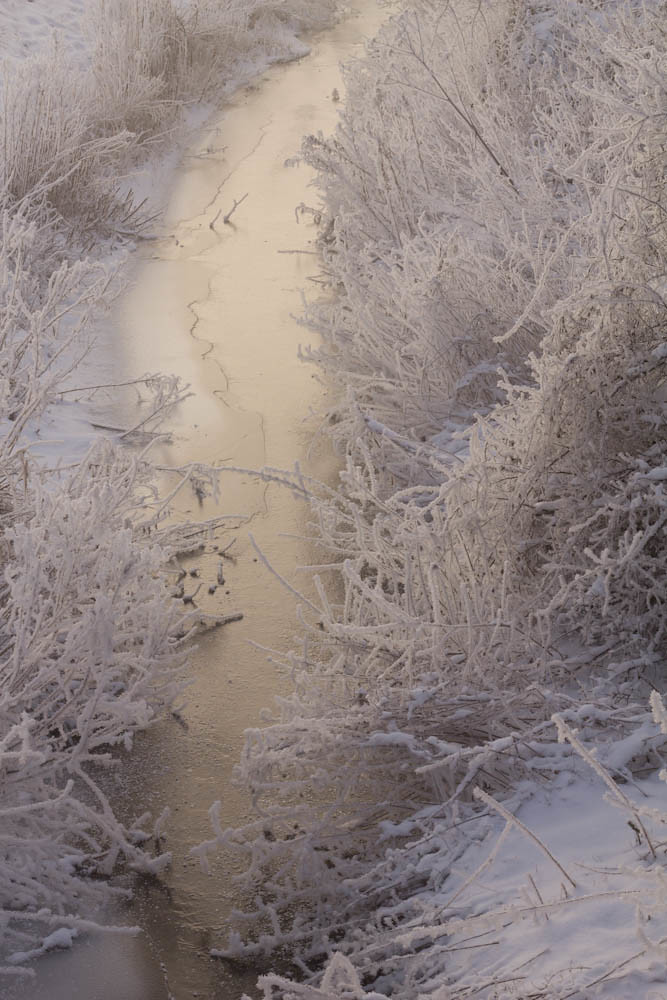
The River Till: photo by jillyspoon, 14 January 2012
'What gars ye rin sae still?'

River Tweed from Mertoun House, near St Boswells: photo by Jean Walley, 17 May 2003
Says Till to Tweed --
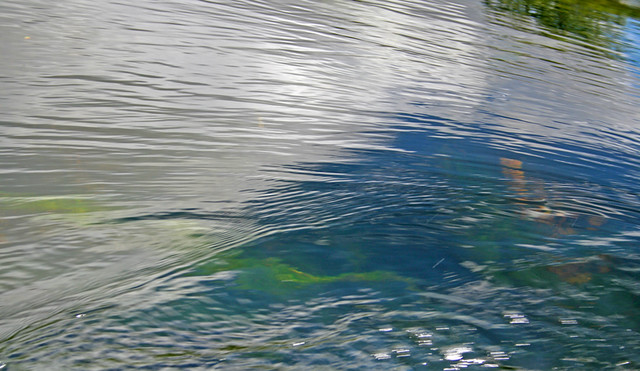
Falling water: main channel of the River Till flowing through an overspill: photo by borderglider, 14 September 2007
'Though ye rin with speed
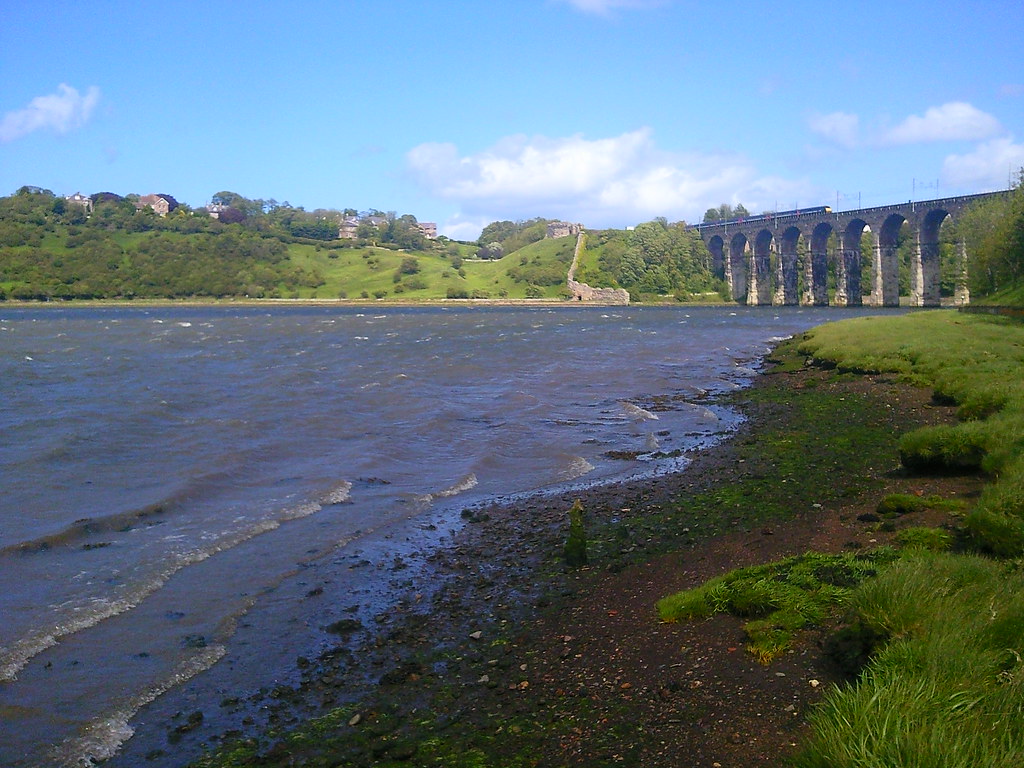
Waves on River Tweed on a windy day: photo by Karen V Bryan, 29 May 2011
And I rin slaw,
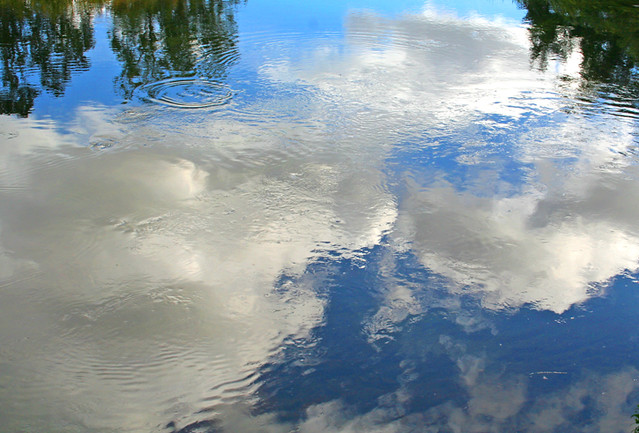
Trout rising to flies, River Till, Northumberland: photo by borderglider, 14 September 2007
For ae man that ye droon
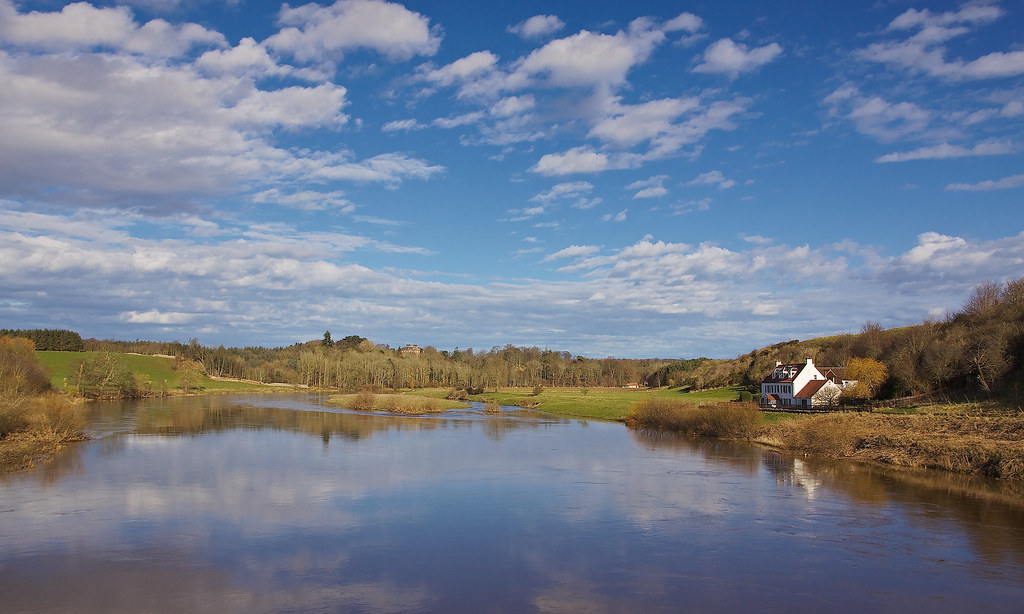
Paxton House on the River Tweed from Union Bridge: photo by Michael Lindley, 17 February 2009
I droon twa.'
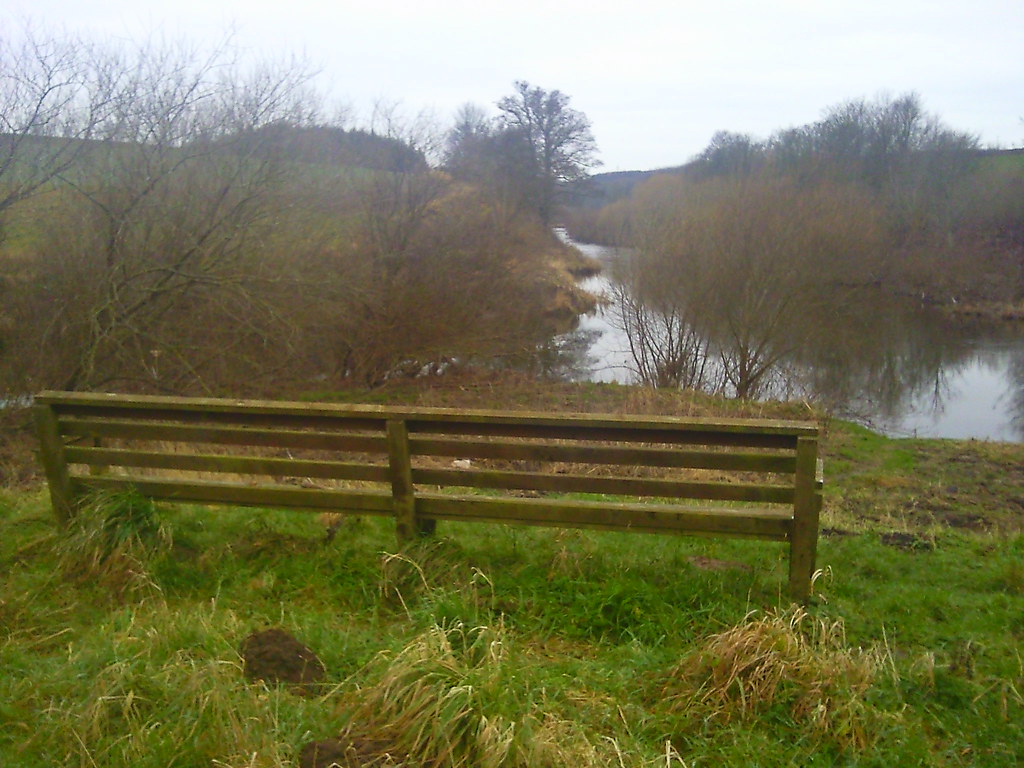
View over River Till joining River Tweed: photo by Karen V Bryan, 14 January 2012

The River Tweed at Coldstream in the Scottish Borders: photo by Mick Knapton, 24 August 2004
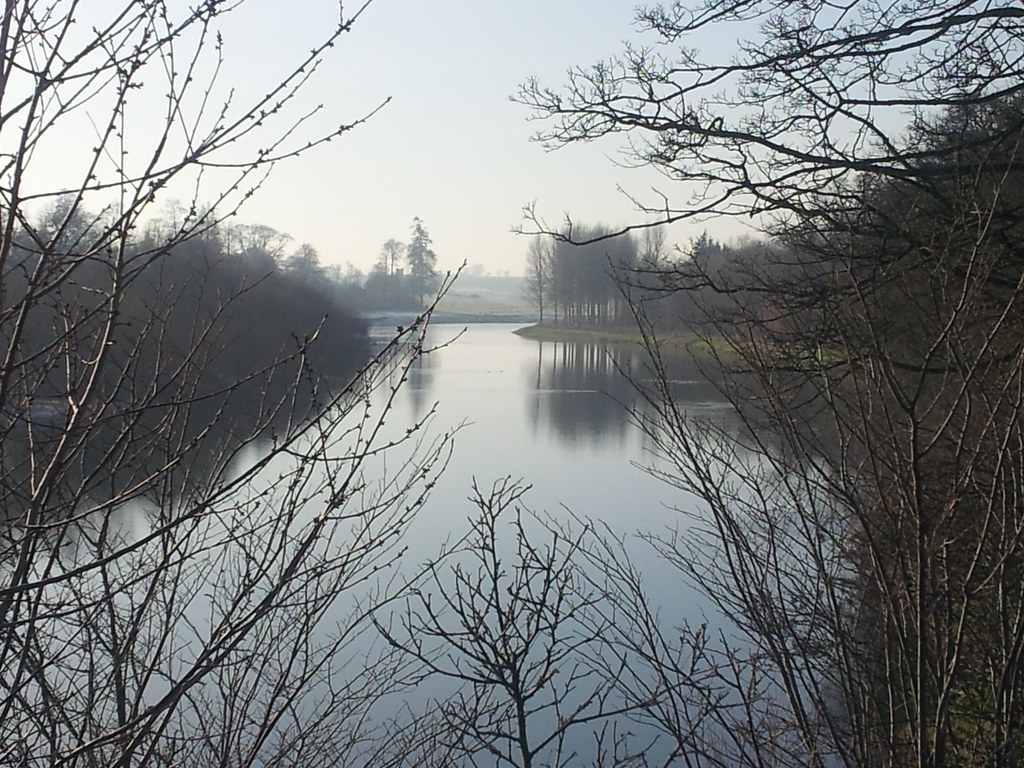
The River Tweed between Birgham and Coldstream: photo by Adrian Johnston, 16 January 2012
gars = makes
droon = drown
Says Tweed to Till: anonymous, 17th/18th c.
The bare rolling stretch of country from the North Tyne and Cheviots to the Scottish southern uplands was for a long time the territory of men who spoke English but had the outlook of Afghan tribesmen; they prized a poem almost as much as plunder...
-- A. L. Lloyd, Folk Song in England, 1967
Tom,
ReplyDeleteAye laddie, 'twas a big one this mornin' (5:43 'twas it? Hayward fault say ye? -- methought 'twas right under me house, shakin' me awake, rattlin' bones and windows). Maybe 'tis time to head for the hills, or take our boats to the Tweed . . .
3.5
light coming into fog against invisible
ridge, first sparrow calling from field
in foreground, sound of wave in channel
in this sense space is mass
of matter, that which
follows that, in accordance
with, hence the other
cloudless blue sky reflected in channel,
sunlit green of pine on tip of sandspit
Steve,
ReplyDeleteAye, right under us -- a short sharp jolt, followed by a pause, followed by a rocking freight-train rumble that knocked the antique dust catcher objects off the walls
At the speed
of the Tweed
a troubled river
receiving its tributary
Dense cold fog shrouding all here, with high wind advisory.
Down East here, I hadn’t yet heard about the temblor out your way until I read the comments. Steady on. Anyway, I’m liking very much this ‘plaid kick’ you’re on. If I were still a travelin’ man’d I’d hie me to Scotland, in hopes of experiencing with my own eyes and ears a bit of what you offer.
ReplyDeleteHazen,
ReplyDeleteKicks galore here, as in batten down the wee Tartan hatches.
Our kilts are in disarray.
"they prized a poem almost as much as plunder..." indeed they did and we are sorely in need of such poetic brigands.
ReplyDeleteMy many thanks for the recent postings My father's ancestors to judge from the name were from the Border region of Scotland and my mother’s The Highlands Last week would have been my father's 83rd and today my mother's 80th had she not died in March last year shortly after her 79th
ReplyDeleteI live in Massachusetts now
Something impromptu:-
Faw water ae the River Till
faws flowing through an overspill
The Tweed fae Glenbreck
rill on rill and Till by Jillyspoon
the memories stir -
what yins
survive and aw that deid drooned
or drapped as the fish rose tae flies
whar Till and Tweed collide
Frae Coldstream so my Borders kin
gang forth to Forth and settled in
leaving their land
their sheep-thieving ways behind
Whar bigger battles fought defined
the course and sent the Scots
in rinning waves across the gorse -
frae Stirling tae America frae border roots
and Heilan’ crags whar mither’s clan
sang played and pranced
Tae visit and revisit graves
smile and lament -
on birth days aye recall
a pibroch air
a reel tae up and dance
"they prized a poem almost as much as plunder..."
ReplyDeleteSounds like "Mamas don't let your babies grow up to be cowboys":
"Cowboys ain't easy to love and they're harder to hold.
They'd rather give you a song than diamonds or gold."
These posts are taking me back to far happier times spent as a gadfly about Glasgow, purportedly a student at the ancient local university, but mostly just siphoning enough from room & board funds for bus rides to vaguely guttural sounding towns like Wick, Lairg, and Lochcarron, getting lost in clouds just long enough for fear but not long for desperation, and falling in love with a people. I wanted never to leave, and perhaps should've pressed the issue when the visa stamp on my passport indicated I needed to do so. I miss it still; and with these images & this language, I return.
ReplyDeletedalriada,
ReplyDeleteA lovely and moving tribute that is. Honouring the origins, keeping the memories green -- I'm convinced the memorial function is the oldest and deepest use of poetry. That the things to which we have given care, and which have cared for us, not be forgotten.
Vassilis and Tom,
Now we narrow in more closely upon't, putting a name to the troublous and contentious, lyrical and ultimately ineradicable wild spirit of the poetry of all historically disputed Borderlands. Brigands and cowboys, indeed.
Where there's life there's hope (even if it doesn't come in the package deal with the diamonds and gold, the prizes, the grants and the tenure).
Brad,
ReplyDeleteSorry about that, I hadn't noticed your comment was stuck in the holding tank (speaking of brigands).
I had hoped you'd see this one, in fact had thought of you and your background all through the construction of these last several posts.
If ever a place merited that unconditional lost-in-the-clouds love, this must be it. At least you've got those memories.
I too, in other times and other historical circumstances, had a long spell out of this country, and then a longer spell, once returned, of regarding with rue that fateful decision to come back.
All these delayed departures, always so riddled with considerations and reconsiderations.
Though back when I was negotiating these waters, one had to do so, in fact, by ship... a degree of difficulty that at least upped the ante just a tad. Or should have done, had one only possessed the mother wit.
Thanks tom for the response and the opportunity to share something
ReplyDeleteReminds me a bit of Anna Liffey and her whisperings threading her way down toward Howth and the ancient Dublin city ...
ReplyDeleteBeautiful photographic essay (almost wrote assay, which might be the better choice).
A pan dipped in the folkloric stream rarely fails to turn up some glittering grain of poetry.
ReplyDelete